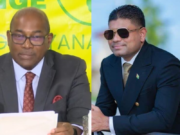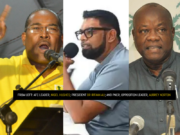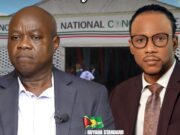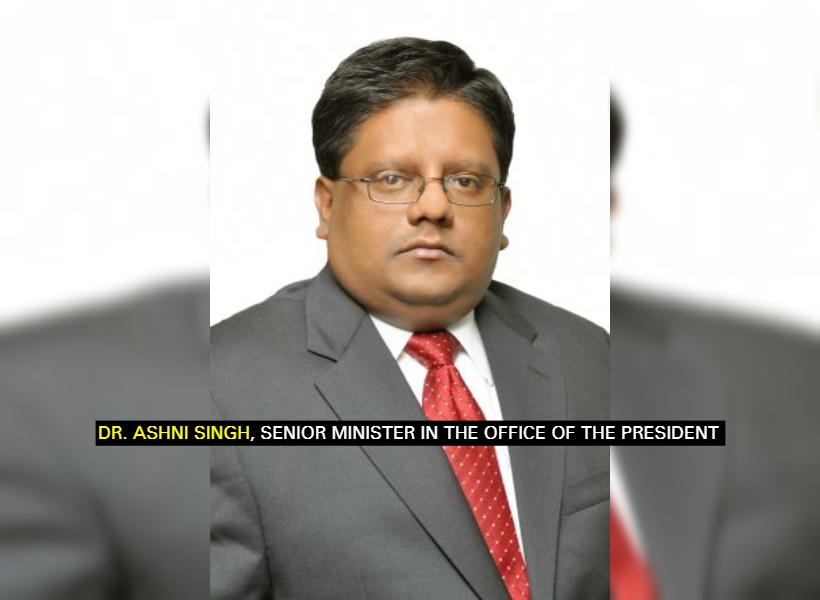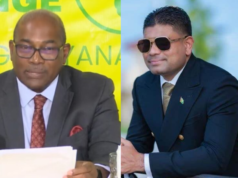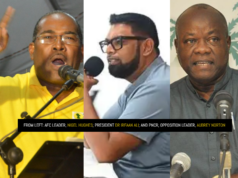Government’s members of the National Assembly, moments ago, passed key amendments to the Fiscal Management and Accountability (FMAA) which will see proposed estimates of Constitutional Agencies being considered and approved during one holistic review of the national budget.
Changes that were enacted by the APNU+AFC regime in 2015 did not allow for this to take place. In fact, the changes to the nation’s financial laws by the coalition sought to give 17 constitutional bodies, a degree of financial independence by allowing them to determine their own budgets and have same charged as a lump sum on the national purse. In so doing, former Finance Minister, Winston Jordan had noted that the amendments would, in effect, make these constitutional bodies free from having their budgets micromanaged by the Executive.
But when the time came for the very estimates of agencies such as Parliament Office, Office of the Auditor General, the Public and Police Service Commission, Teaching Service Commission, and the Public Procurement Commission to be considered just one year after the amendments were approved, the coalition refused for the proposed estimates to be granted as is. In fact, those agencies saw massive reductions to their yearly requests, bringing into question, the relevance and genuineness of the amendments made.
Despite calls by the PPP/C, which served as the political opposition at the time, for the sums to be granted in full, Jordan had made it pellucid that the requests on the Treasury could not be granted given the nation’s spending priorities. He had also stressed that the nation ought to understand that financial independence does not mean unlimited access to the Consolidated Fund.
Taking into consideration, in particular, that the amendments by Jordan failed to achieve their intended purpose, Senior Minister with responsibility for Finance, Dr. Ashni Singh led the first reading of fresh amendments which would hopefully restore some semblance of order and respectability to the manner in which the agencies’ budgets are considered.
Apart from having the estimates of the constitutional agencies part and parcel of a comprehensive review process of the national budget via the House, Dr. Singh said that amendments will allow the government to ensure that the said estimates are in keeping with objectives for sound fiscal outcomes. The Senior Minister strongly contended that the amendments by the former regime impeded this critical requirement as it required the agencies to submit their budgets to the House and not the subject ministers. He said that this violated that cardinal principle enshrined in the Constitution for the Executive’s involvement in the management of the nation’s finances.
By having the estimates of Constitutional agencies considered separately, Dr. Singh said that the coalition was also violating another cardinal principle of sound fiscal management. The Senior Minister said, “…It is fundamental that the budget be considered as a whole as it is looks at a range of competing pulls on the Treasury and all, usually legitimate, are considered amongst each other and a process of prioritization is undertaken to optimally use the limited resources of the country…”
Considering this, the senior official said that constitutional agencies cannot be looked at in isolation as it is a most reckless approach that disregards cardinal rules that protect the economic wellbeing of the nation.
In response to Dr. Singh’s presentation, Opposition Member, Roysdale Forde was keen to note that the 2015 amendments represented a positive and forward-looking system. He argued that the proposed changes by the PPP/C administration would see the return to the demolition of the independence of the constitutional agencies and their subsequent imprisonment. The lawyer even told the House that what it is witnessing is a creeping dictatorship by the PPP/C.
But Public Works Minister, Juan Edghill wasted no time in decimating the arguments proffered by his colleague as he reminded the House that the APNU+AFC which championed financial independence of the said agencies significantly lowered such requests year on year. He said that while Jordan had allowed the agencies to bring their budgets to be considered as a lump sum, he slashed them in a lump sum manner, with no due regard for the consequences. Edghill said that the new order being proposed will ensure proper consultation and analysis are conducted before appropriate cuts are made.
His colleague, Minister of Legal Affairs and Attorney General, Anil Nandlall echoed similar sentiments as he admonished the previous regime for cutting the budgets of constitutional agencies in the past without just consideration of the ripple effects.
Other members who offered their contributions on the first reading of the bill included Government’s Chief Whip, Gail Teixeira, and Opposition Members, Khemraj Ramjattan and Sherod Duncan.
During his closing remarks, Dr. Singh said that the new amendments put to rest, the ridiculous charade the former regime was putting on about the need for financial independence of these agencies. He expressed hope that the Opposition would do the honourable and decent thing and vote in favour of the amendments.
Speaker of the House, Mr. Manzoor Nadir then called for the House to vote on the second reading of the 2021 Amendment Bill. The National Assembly then resolved itself into Committee of Supply where each amendment was considered. Since the opposition chose to be absent for that process, the government was able to proceed with the smooth passage of the amended legislation.
